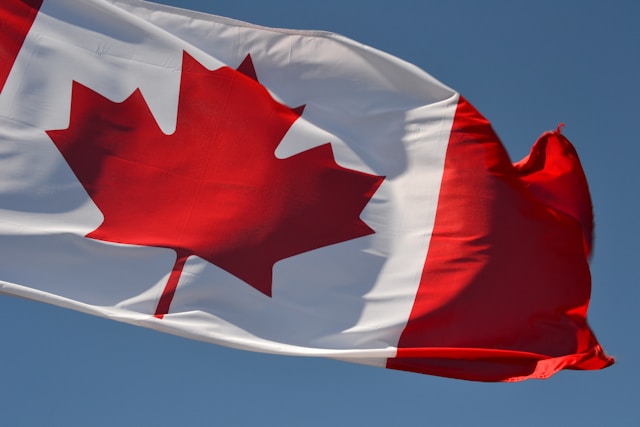The growing animosity of international trade wars may be rattling global markets, but it’s quietly reshaping the local economies of cities like Barrie, Ontario, in ways once considered unlikely.
When U.S. tariffs raise the stakes, the ‘Buy Canadian’ movement emerges as both an economic defence mechanism and a rallying cry for consumers to prioritize homegrown products. For Barrie residents, the implications are direct and profound. Supporting local businesses has gone beyond mere patriotism—it has become a lifeline for maintaining economic stability during turbulent times.
At the heart of this shift lies a nuanced consumer sentiment. Canadians are now scrutinizing product labels more than ever, searching for authenticity amidst a sea of slick marketing tactics. Terms like “Made in Canada” and “Product of Canada” are not interchangeable, though companies often blur these lines. For instance, ‘Made in Canada’ only requires 51% of the production to occur domestically, while ‘Product of Canada’ ensures a far stricter 98% threshold. This subtle distinction becomes critical as companies ride the wave of this consumer awakening, sometimes misrepresenting their ties to Canada—a trend dubbed ‘maple-washing.’
Consider the case of Maple Leaf Foods, which rebranded its packaging with fresh “Proudly Canadian” stickers and launched the “Look for the Leaf” campaign, alongside brands like Gay Lea and Dare Foods. While these campaigns inspire confidence, they also highlight the complexities of modern marketing. Regulatory bodies like the Canadian Food Inspection Agency are already grappling with maple-washing complaints, as some companies exploit national symbols to feign Canadian origins. It’s a calculated risk—profitable for those who succeed undetected but potentially disastrous for brands found guilty of deception.
Barrie’s small businesses have much to gain from this movement. Experts argue that this moment represents a unique opportunity for locally-produced goods to carve out space on store shelves long dominated by international brands. With each dollar spent on authentic Canadian products, consumers directly bolster local jobs and businesses. In Barrie, this has translated to bustling farmers’ markets, thriving artisanal shops, and a renewed sense of community-centered commerce.
However, navigating this new terrain is not without its pitfalls. The federal government has stepped in, publishing guidelines to clarify labeling practices and educate consumers on identifying genuinely Canadian products. Their clarity is essential not just for consumers but also for businesses as they strive to align with stricter standards without alienating customers.
All this begs the question: how sustainable is the ‘Buy Canadian’ movement? Experts like Peter Chapman, a former Loblaw executive, suggest it could be transformative. Not only does it give homegrown brands a chance to challenge international competitors, but it also reinforces Canada’s economic resilience amidst ongoing trade turbulence.
For residents of Barrie, the impact of their purchasing decisions extends far beyond their shopping carts. Supporting authentic Canadian goods strengthens the local economy, protects jobs, and fosters a sense of collective identity. Now more than ever, where we choose to spend our dollars dictates the kind of economic future we build—not just for ourselves but for the communities we cherish.
References:
As U.S. trade war ramps up — again — ‘Buy Canadian’ is spurring change

